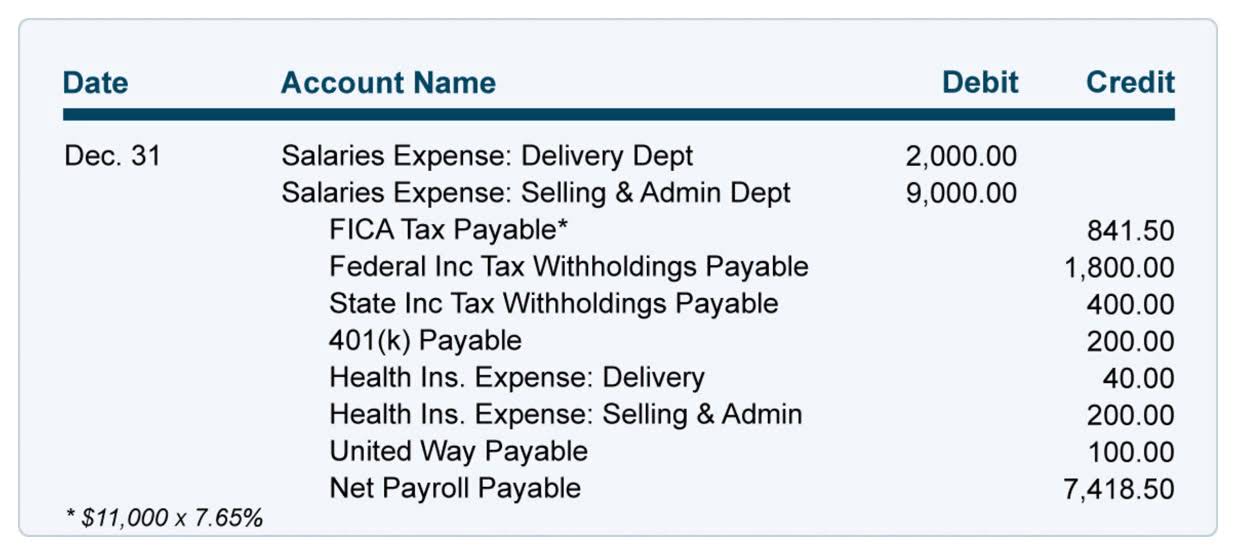
Your supplier calls to let you know that they won’t be shipping any products until you pay your bill. While you may not keep physical checks anymore, be sure that you keep your bank statements handy so you can determine if a check has cleared and, if so, request a copy of the check to give your supplier. If you’re not sure whether something needs to be tracked, err on the side of caution and assume that it does. In all cases, the following financial items need to be properly managed. Startups can save money on accounting immediately by taking meticulous care of their records, receipts, and spending. Choosing an accounting program that can help you organize everything in one place is invaluable.
Small Business Accounting 101: 12 Steps for Basics and Setup (2024) – Shopify
Small Business Accounting 101: 12 Steps for Basics and Setup ( .
Posted: Thu, 25 Jan 2024 08:00:00 GMT [source]
The best accounting software programs all provide similar features, so when considering which one is best for your business, you need to consider which features are the most important to your situation. This will help you decide which accounting software meets your needs best. Other features you may want to consider include whether the software has a mobile app, how good its customer service is and how well it does with accounts receivable (A/R) and financial reporting. Startup success hinges on a clear understanding of your financial landscape. A CPA thoroughly assesses your startup’s finances, systems, and processes. They analyze cash flow statements, balance sheets, budgets, capital structure, and funding needs to gain a 360-degree picture of your financial health.
Monitoring Your Business’s Financial Health
And our advice can grow with your company, from simple startup CPA accounting to part-time CFOs. Whereas a traditional small business focuses on their bank account balance, startups focus on the KPIs that help them raise their next round of funding. Choose an advisor who “gets” early-stage, Silicon Valley-style businesses.
Accolade Accounting is one of the firms you can rely on to handle your startup’s finances. The tailored approach to client services from Accolade Accounting ensures that the specific accounting requirements of your growing business are met and properly handled. Startup owners require the full attention of an accounting accountant for startups firm that puts the best interests of its clients. When you have Accolade Accounting handling your startup’s finances, you’ll have well-managed finance. Choosing the right accounting software for your startup is a critical decision that can significantly impact your financial management and overall efficiency.
Why is accounting important for startups?
Startup accounting provides valuable insight into your startup’s cash flow and also allows you to make financial projections. Most importantly, it ensures that your startup is staying compliant. If you are running a SaaS startup, and you sell a 12-month contract to a client for $120,000 in January, on a cash basis you record $120,000 and that’s it. You don’t get any more revenue from that client for the rest of the year. That really doesn’t reflect reality, because you still need to deliver that service for the rest of the year. With accrual accounting, you would recognize $10,000 of that revenue each month.
- Cash flow management is a critical aspect of running a successful startup.
- As accountants and advisors to these high-growth companies, we need to share values such as innovation and kaizen – while staying true to the standards of the accounting profession.
- You’ll want to hang on to most records for at least three years, though there are exceptions where you may want to keep your business’s financial records longer.
- It’s a useful but incredibly costly tool that requires over $10,000 a month to maintain.
- In all cases, the following financial items need to be properly managed.
This requires accrual basis accounting rather than simple cash basis accounting. An experienced accountant can help you make calculations that maximize the value and attractiveness of your business. Every startup accounting system is built on the three main financial statements. These are the balance sheet, income statement and cash flow statement. The best rule of thumb for startup accounting is to hire a professional accountant to help you manage your business’s finances. However, there are several accounting software options available to help you manage your startup finances whether or not you choose to hire an accountant.
Key Accounting Terms to Know
Kruze helped us all the way through our journey – from our seed round to our A to our eventual acquisition by a public company. I personally can tell you, they’ve done a great job for our companies, including Calm.com. If you’re not using checks, keep proof of your payment together with the bill if the payment goes missing.
Our clients span the typical “Silicon Valley” style business models and industry focuses, from SaaS to Hardware to Biotech to Crypto … well, you get the picture. As a remote-first company, with offices in several cities like Austin and NYC in addition to our California locations, we are able to take on clients anywhere in the United States. You did it because you are passionate about your offerings and a vision that can impact the world. This means not only how long they have been a practicing accountant but also the volume of their work and how close it is to your business.
To E-Commerce, advice on securing loans, and the ins and outs of starting your own food truck business. There will also be networking rooms, giving small business owners a chance to mingle and get to know each other. “At Rio Salado College, we believe in empowering student-entrepreneurs of all majors. Our curriculum design to help small business owners with strategies and tactics to grow within their industry competitive landscape,” said Dr. Lily Davidov, Faculty Chair of Accounting and Small Business.